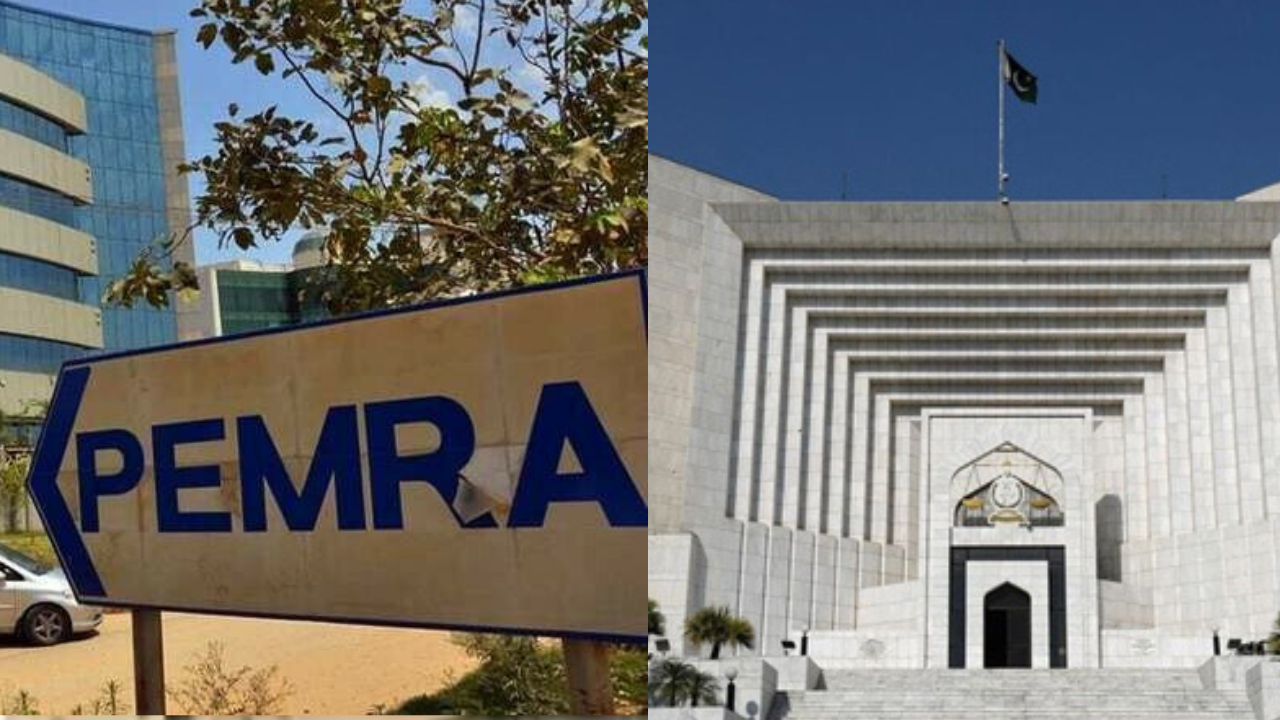This update is meant to identify key developments during the month on Performance of Democratic Institutions in Pakistan with selected high-profile international developments included occasionally.
-
-
- Federal Government notifies commission to probe Tehreek-e-Labbaik Pakistan (TLP) sit-in at Faizabad in 2017
- Senate of Pakistan extended the National Accountability (Amendment) Ordinance, 2023
- ECP sets election date as February 08, 2024
- Cipher case against PTI Chairman
- Bill passed by Parliament goes missing
- SC strikes down a key decision of the PEMRA to centralise its powers in the hands of its chairperson
- Bill by caretaker information minister prevented from moving in the senate
- PM office says he doesn’t interfere in domain of intelligence agencies
- Supreme Court (SC) asks owner of a private housing society to approach the relevant quarters, including the defence ministry, for the redressal of grievances against former DG ISI
- PTI presents a 24-point Charter of Demands (CoD) to the ECP to ensure free, fair and transparent general elections
- Supreme Judicial Council (SJC) decides to issues another detailed show cause notice to the Supreme Court judge, Sayyed Mazahar Ali Akbar Naqvi
- Supreme Court returns petition against enforced disappearances
- Senior PTI leader Asad Umar leaves party
- CM Khyber Pakhtunkhwa passes away
- Senior JUI-P member reveals former CM Balochistan was forced to approve 2023 national census results
- Resolution urges Supreme Court to “reconsider” its verdict of declaring “unconstitutional” the military trial of civilians
- President says he will administrate oath to former PM, Mr. Nawaz Sharif if he is elected
- PTI President says that representatives of IMF and EU regularly visit PTI Chairman in Jail
- US and UK ambassadors discuss Poll concerns in meetings with Political Parties heads
- Additional district & sessions judge (ADSJ) removed for admonishing the defence secretary for not complying with a court order
- Supreme Court seeks trial for those who validated General Musharaff’s coup
- CJP regrets precedents where high courts knowingly disregarded or invalidated earlier Supreme Court’s judgements
- European Union report highlights enforced disappearance and shrinking media freedom
- Supreme Court judge regrets President, CEC, Governors of KP and Punjab were guilty of not performing their duties by not holding elections within 90 days period
- ECP concludes hearings on objections to the new delimitation of constituencies
- Former president anticipates the formation of a “national unity government” after the upcoming general election
- PM urges political parties not to intertwine security challenges with political matters
- SFIC Meetings
- IHC warns PM with FIR if government fails to recover missing Baloch students
- PTI Chairman picks Barrister Gohar Khan as party’s chairman for the upcoming intra-party polls
- IHC acquits former PM, Mr. Nawaz Sharif in the Avenfield Apartments reference case
- Army convicts two retried officers for violation of the provisions of Official Secrets Act, 1923 related to espionage and acts prejudicial to the safety and interest of the State
- Islamic Scholars meet COAS
- 82nd Formation Commanders Conference
- Speaker National Assembly meets Foreign Dignitaries
- Chairman Senate meets Foreign Dignitaries
- Interactions of COAS with Foreign Dignitaries
- Caretaker Prime Minister’s Interactions with COAS
-
Federal Government notifies commission to probe Tehreek-e-Labbaik Pakistan (TLP) sit-in at Faizabad in 2017
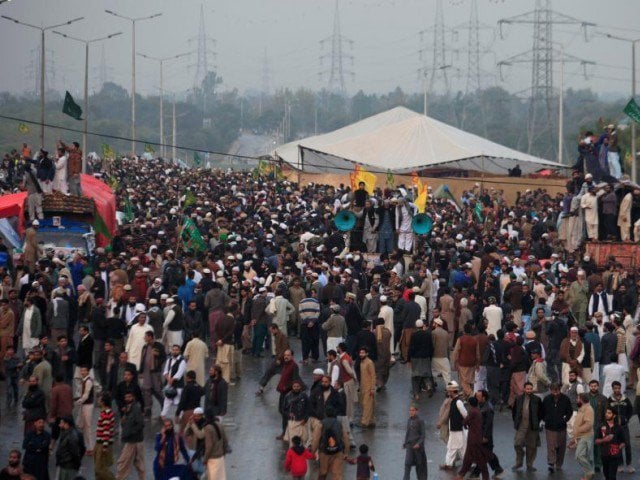
On November 15, the federal government notified a commission to probe the Tehreek-e-Labbaik Pakistan (TLP) sit-in at Faizabad at intersection of Rawalpindi and Islamabad in 2017, superseding a previous ‘toothless’ fact-finding committee. The notification was submitted by the Attorney General, Mr. Mansoor Usman Awan, before a three-judge bench of the Supreme Court, comprising Chief Justice, Justice Amin-ud-din Khan and Justice Athar Minallah. The terms of reference for the three-member commission include investigating various aspects of TLP’s sit-in, including the involvement of officials from intelligence agencies. The members of the commission are former police officers Syed Akhtar Shah and Mr. Tahir Alam Khan, along with Additional Interior Secretary Mr. Khushal Khan. Chief Justice of Pakistan (CJP) Qazi Faez Isa directed the Attorney General to amend the terms of reference to extend the probe to appellants who approached the Supreme Court collectively and are now withdrawing their appeals. The commission has been instructed to inquire whether the appellants filed the appeals on their own or at someone’s behest.[1]
On November 1, the Supreme Court had rejected the government-appointed three-man special fact-finding committee related to the TLP sit-in at Faizabad in 2017.
Senate of Pakistan extended the National Accountability (Amendment) Ordinance, 2023
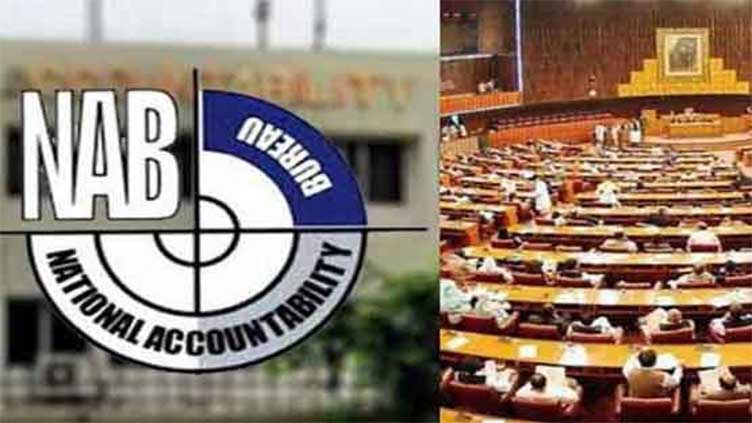
On November 2, the Senate of Pakistan extended the National Accountability (Amendment) Ordinance, 2023, for an additional 120 days. The extension, effective from October 31, 2023, was approved through a resolution moved by Law Minister Ahmad Irfan Aslam. The ordinance, originally promulgated in July 2023 by Acting President Muhammad Sadiq Sanjrani (President Dr Arif Alvi was in Saudi Arabia when Mr Sanjrani, on the advice of former prime minister Shehbaz Sharif, had promulgated the ordinance), empowers the National Accountability Bureau (NAB) in various ways, including allowing an arrested accused to be kept on physical remand for 30 days instead of 14. The amendments also grant the NAB chairman authority to issue arrest warrants for non-cooperation during investigations and permit the arrest of an accused at the inquiry stage. Raising the first objection over the move, PTI parliamentary leader in the House, Senator Syed Ali Zafar wondered how the house was going to pass a resolution to extend the ordinance when the Supreme Court has declared amendments made in the NAB law unconstitutional.[2]
ECP sets election date as February 08, 2024
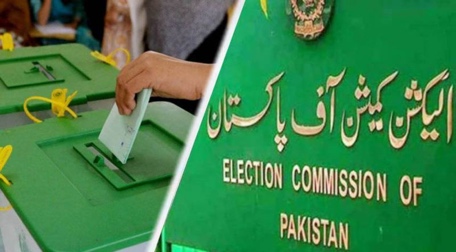
On November 2, the ECP agreed to hold general elections in the country on February 8, 2024, after consultations with President Dr. Arif Alvi. The ECP’s initial proposal for elections on February 11 was modified based on the Supreme court’s directives. The decision was announced after a meeting between President Alvi and Chief Election Commissioner (CEC), Mr. Sikandar Sultan Raja. Mr. Sikandar Sultan Raja, who visited the presidency with the ECP members, on the orders of the Supreme Court, which had taken up pleas regarding elections. During the hearing in the apex court earlier in the day, the ECP had proposed February 11 as the date for polls but it was asked by the three-member bench to approach the president for consultations.
Within Supreme Court’s detailed order on November 3 regarding the confirmation of the general election date for February 8, 2024, CJP expressed regret that an issue, which could have been resolved through a straightforward agreement between the President and the ECP, was unnecessarily brought to the judiciary.
Cipher case against PTI Chairman
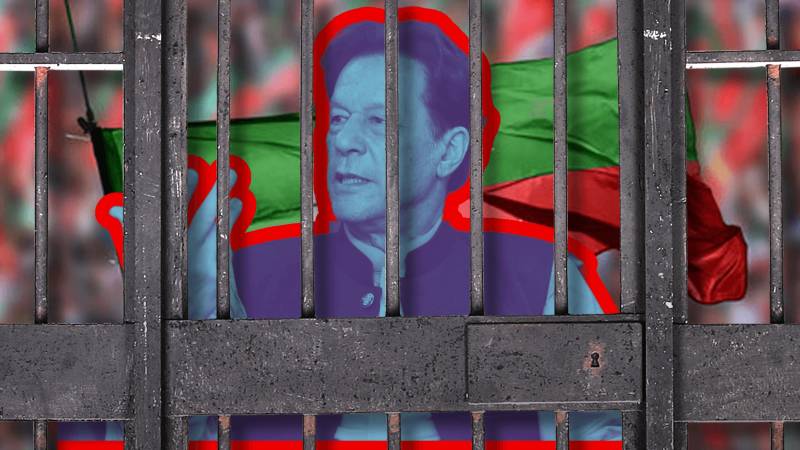
On November 21, Islamabad High Court (IHC) nullified the notification issued by the Ministry of Law and Justice on August 29, 2023, which had allowed the jail trial of Imran Khan on charges related to leaking state secrets. This decision renders the jail trial proceedings conducted so far invalid. The court clarified that a trial in jail can be conducted in exceptional circumstances and if conducive to justice, provided it follows the requirements of an open trial or a trial in camera, as per the procedure provided by law. The court declared that the November 15 notification, which approved the jail trial after the caretaker cabinet’s approval, cannot be given retrospective effect. This underscores the importance of adhering to due procedure and legal requirements in the issuance of notifications. The court affirmed the validity and lawfulness of the designation of the Special Court (Anti-Terrorism-I) Islamabad to try cases reported under the Official Secrets Act, 1923.
Bill passed by Parliament goes missing
On November 04, bill, which was passed by both houses of parliament months ago, has gone missing, it has emerged. A calling attention notice submitted with the Senate Secretariat, bearing the signatures of PPP Senators Saleem Mandviwala and Taj Haider, invites the attention of the federal minister for parliamentary affairs towards the non-approval of “The Protection of Family Life and Wedlock Bill, 2023” (bill working under the administrative control of the federal directorate of education, ensuring the protection of family as provided in articles 25, 34 and 35 of the Constitution).
The bill was passed by the National Assembly on July 27 and transmitted to the Senate on July 30, 2023. It was passed by the Senate on August 7 and forwarded to the ministry of parliamentary affairs for onward transmission to the prime minister and then to the president for approval. However, the bill could not become an act of parliament, and it is not known where it got stuck. Earlier, a bill moved by PML-N Senator Irfanul Haq Siddiqui had disappeared after being passed by both houses of the parliament. In June 2022, after the Senate, the national assembly also passed the bill, seeking separation of the judiciary and the executive by clipping the judicial powers of assistant commissioners, the deputy commissioners and the commissioners. After the approval from both houses, the bill was supposed to be sent to President Arif Alvi for his assent but it “disappeared”.[3]
SC strikes down a key decision of the PEMRA to centralise its powers in the hands of its chairperson
On November 04, Supreme Court’s decided to strike down PEMRA’s 2007 decision centralizing powers in the chairperson’s hands. The case originated from a complaint against Neo TV for violating the Electronic Media (Programmes and Advertisements) Code of Conduct in a program aired in March 2021. The PEMRA Council of Complaints (COC) found the content in violation and recommended a fine, which was approved by the PEMRA chairperson. SC, in its ruling, invalidated PEMRA’s 2007 decision to delegate powers to the chairperson without specifying standards or decisional criteria. The court emphasized that public bodies, including PEMRA, must confine and structure discretion through decisional criteria to strike a balance between rules and discretion. The court’s directive to establish formal rules underscores the importance of clear and transparent guidelines in the exercise of regulatory powers. The court’s order reflected a commitment to limiting the delegation of powers by public bodies, ensuring that discretion is exercised within defined parameters.[4]
Bill by caretaker information minister prevented from moving in the senate
On November 07, the caretaker information minister attempted to move a bill in the Senate but the elected members termed this as a transgression of his constitutional domain. The caretaker information minister, Mr. Murtaza Solangi attempted to move the Motion Picture (Amendment) Bill in the Senate. PPP Senator Mian Raza Rabbani raised a point of order, asserting that caretaker governments lack the constitutional authority to introduce legislation. Senator Rabbani referred to Section 230 of the Elections Act, emphasizing that caretaker governments are restricted to routine, non-controversial, and urgent matters. The argument is grounded in the idea that introducing legislation, especially when one house of parliament is non-existent, is not routine business. Senator Rabbani questioned the necessity of the bill for running the affairs of the caretaker government. This raises concerns about the caretaker government engaging in activities that extend beyond their prescribed constitutional role. Initially, the Senate Chairman, Sadiq Sanjrani, deferred the matter until the new government takes power, suggesting a cautious approach. He later decided to examine the bill and seek opinions from legal experts, including the attorney general. The caretaker information minister expressed his commitment to the Constitution, law, and democracy and stated that he would respect any decision taken by the Senate.[5]
PM office says he doesn’t interfere in domain of intelligence agencies
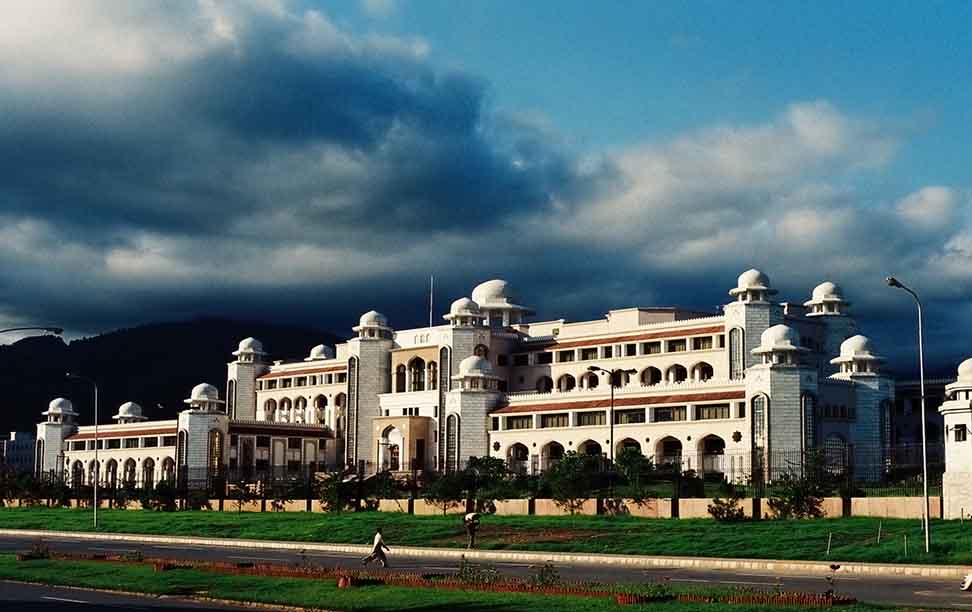
On November 06, Prime Minister (PM) Office asserted that it maintains an “arm’s-length relationship” with intelligence agencies and does not interfere in their domain. The PM Office expects intelligence agencies to operate within the constitutional and legal framework in the public interest. The report highlighted key laws that empower intelligence agencies for surveillance, including the Investigation for Fair Trial Act, 2013, the Telegraph Act, 1885, and the Prevention of Electronic Crimes Act, 2016. These laws provide mechanisms for obtaining permission for recording telephone conversations and interception of messages. The PM Office argued that delving into operational details and the working of intelligence agencies would be against the interest of national security. Justice Babar Sattar directed the AGP to discuss the audio leaks matter with the cabinet to devise a legal framework for surveillance. The court seeks clarity on who has the authority to decide on recording phone calls and the measures taken to investigate and prevent unauthorized audio releases. The court expressed concern over unauthorized audio surveillance, particularly in cases involving the PM Office, a Supreme Court judge, and a former chief justice’s family. Questions were raised about the entities and agencies with the technological capability to record phone calls and release such recordings to the public. Court emphasis on devising a legal framework indicates a recognition of the importance of oversight in surveillance activities.[6]
Supreme Court (SC) asks owner of a private housing society to approach the relevant quarters, including the defence ministry, for the redressal of grievances against former DG ISI
On November 08, Supreme Court’s dealt with the petition filed by Moeez Ahmed Khan against former spymaster Lt-Gen (Retired) Faiz Hameed .The petition stems from a 2017 raid by Pakistan Rangers and ISI officials on Top City Housing Scheme, during which valuables were allegedly seized in connection with a purported terrorism case. The petitioner claimed that Lt-Gen Faiz Hameed’s brother, Sardar Najaf, mediated to resolve the issue after his acquittal in the case. The petition alleged that the retired ISI officials, including Brigadiers Naeem Fakhar and Mr. Ghaffar, coerced the petitioner into paying a significant amount in cash and sponsoring a private AAP TV network. During a meeting, Lt-Gen Faiz Hameed reportedly assured the return of some seized items but excluded 400 tola gold and cash. The petition implicates several retired ISI officials, including Irtaza Haroon, Wasim Tabish, Zahid Mehmood Malik, and Mohammad Munir, in the alleged illegal takeover of the housing society. The Supreme Court observed that the matter did not pertain to the enforcement of fundamental rights, suggesting that the petitioner should approach relevant forums, including the defence ministry. The court advised the petitioner to take the matter to a civil or criminal court, specifically mentioning the option of pursuing legal action against malicious prosecution. The court learned that records related to the case had been allegedly ordered to be trashed by former Chief Justice Saqib Nisar, adding a layer of complexity to the proceedings. Court directed the petitioner to approach the competent forum for redressal, indicating that the matter falls outside the scope of fundamental rights enforcement.[7]
PTI presents a 24-point Charter of Demands (CoD) to the ECP to ensure free, fair and transparent general elections
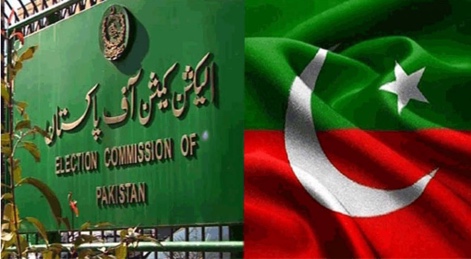
On November 08, PTI presented a 24-point Charter of Demands (CoD) to ECP. The PTI’s CoD is aimed at ensuring free, fair, and transparent general elections scheduled for February 8, 2024. The party seeks a level playing field to conduct its campaign without hindrance. The PTI delegation, consisting of Barrister Ali Zafar, Gohar Ali Khan, and Dr. Babar Awan, expressed concerns about obstacles to the party’s election campaign and urged the ECP to address these issues. The PTI emphasized the ECP’s prompt release of a written decision on the petitions filed by PTI regarding the party’s electoral symbol ‘bat.’ The party seeks clarity and the immediate allotment of the symbol. The PTI delegation requested the ECP to allot the electoral symbol ‘bat’ to the party and ensure its inclusion on the ballot paper for the upcoming elections. The CoD includes a demand for the release and recovery of PTI workers and leaders who are reported as “kidnapped” or arrested. The PTI highlighted challenges faced in holding public gatherings, rallies, and corner meetings on private premises. The party claims delays and refusals for permission to hold meetings. The PTI raised concerns about obstacles to printing party flags and banners, asserting that they were not even allowed to print campaign materials. The PTI drew attention to the release of development funds for the constituencies of former legislators by the caretaker government, stating that such actions were beyond their constitutional mandate and authority. CEC assured the PTI delegation that the ECP would take all necessary steps to conduct free, fair, and transparent elections.[8]
Supreme Judicial Council (SJC) decides to issues another detailed show cause notice to the Supreme Court judge, Sayyed Mazahar Ali Akbar Naqvi
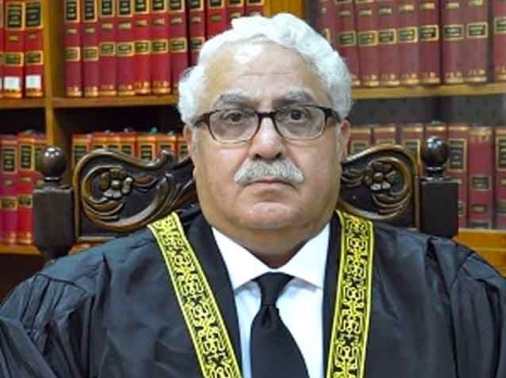
On November 21, Supreme Judicial Council, with a majority vote of four to one, decided to issue another detailed show cause notice to Supreme Court Judge Justice Sayyed Mazahar Ali Akbar Naqvi. Justice Naqvi is facing allegations of financial misconduct, and the SJC has been reviewing complaints filed against him. Four SJC members, including the Chief Justice Faez Isa, Justice Sardar Tariq Masood, Balochistan High Court Chief Justice Naeem Akhtar Afghan, and Lahore High Court Chief Justice Muhammad Ameer Bhatti, voted in favour of issuing the show cause notice. Justice Ijazul Ahsan dissented from the majority order. During the October 27 session, the SJC had dismissed 19 complaints but issued Justice Naqvi a show cause notice related to financial misconduct. Justice Naqvi’s Response: On November 10, Justice Naqvi submitted his response to the show cause notice, accusing three SJC members of bias and requesting their recusal. On the day of the SJC meeting, Justice Naqvi filed a petition in the apex court challenging the council proceedings. The petition sought the annulment of the show-cause notice and the hearing notice, citing violations of constitutional rights, media trials, and damage to his public image. Justice Naqvi argued that the initiated proceedings contradicted his fundamental constitutional rights and previous Supreme Court judgments. He objected to the SJC’s November 13 hearing notice, stating it was issued without addressing his legal and constitutional objections raised earlier and without reconstituting the SJC, breaching Article 209 of the Constitution and the SJC Procedure of Enquiry, 2005.[9]
Supreme Court returns petition against enforced disappearances
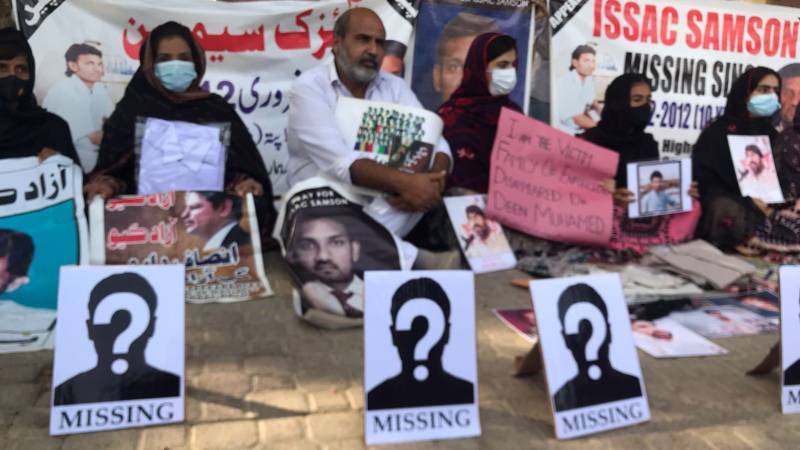
On November 11, the Supreme Court returned a petition against enforced disappearances, citing reasons that it was deemed an “individual grievance” and did not raise any question of public importance. Senior lawyer and politician, Mr. Aitzaz Ahsan filed a petition on October 25, 2023 against the “illegal and unlawful practice of enforced disappearances,” including those of political leaders. The petition sought a direction for provincial governments to submit a list of “missing persons” in the custody of state authorities and a report identifying law enforcement agencies involved in this practice. The petition was filed under Article 184(3) of the Constitution, which grants the Supreme Court extraordinary jurisdiction to take notice of matters where fundamental rights are violated. The Supreme Court’s registrar office returned the petition, stating that it could not be entertained as Aitzaz Ahsan did not specify “what questions of public importance” regarding the enforcement of fundamental rights were involved. The court noted that the petitioner invoked its extraordinary jurisdiction for redressing “an individual grievance,” which was not permissible. Ahsan was also criticized for not approaching any other forum before filing the case and not providing justification for not doing so. Mr. Aitzaz Ahsan claimed that victims of enforced disappearances included journalists, politicians, bureaucrats, and other voices critical of the government. The petition requested the court to declare enforced disappearances as a constitutional violation, citing various provisions of the Constitution, including articles 4, 9, 10, 14, 19, and 25.[10]
Senior PTI leader Asad Umar leaves party
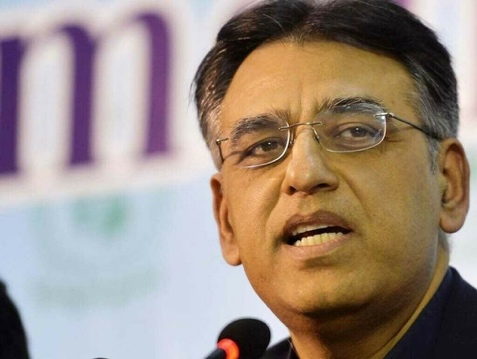
On November 10, former Planning Minister and former PTI Secretary General Asad Umar announced his resignation from politics and PTI. Mr. Asad Umar had earlier resigned as the Secretary-General of PTI following the riots on May 9, 2023, sparked by the arrest of PTI Chairman Imran Khan. The May 9 protests led to the arrest of several PTI leaders, including Mr. Imran Khan, by the paramilitary Rangers inside an Islamabad court premises in connection with a graft case. In a post on X, formerly Twitter, Asad Umar announced his decision to completely quit politics after more than a decade in public life. He also stated that he was relinquishing his basic membership in the PTI. Mr. Asad Umar had been one of Imran Khan’s close aides, but he expressed disagreement with the policy of confrontation with state institutions. He voiced concern that this confrontational policy had led to a serious clash between state institutions, which he believed was not in the best interests of the country. The May 9 events involved protests by PTI leaders against Mr. Khan’s arrest, resulting in a nationwide crackdown, arrests, and subsequent resignations of many party leaders. Mr. Asad Umar expressed gratitude to those who supported him throughout his public life. He specifically acknowledged the NA-54 team and the voters who elected him twice.[11]
CM Khyber Pakhtunkhwa passes away
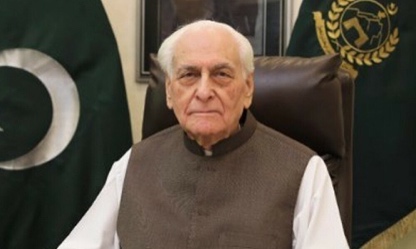
On November 10, Caretaker Khyber Pakhtunkhwa Chief Minister, Mr. Mohammad Azam Khan passed away at the age of 89. Mr. Mohammad Azam Khan, a Barrister-at-Law from Lincoln’s Inn, London, served in various capacities in federal and provincial governments. He took oath as the Caretaker Chief Minister of Khyber Pakhtunkhwa in January 2023 after the dissolution of the provincial assembly. With Mr. Azam Khan’s death, the provincial cabinet in Khyber Pakhtunkhwa is considered “automatically dissolved.” The KP Governor, Haji Ghulam Ali, sent letters to former CM Mahmood Khan and former KP opposition leader Akram Khan Durrani, initiating the consultation process under Article 224(1A) of the Constitution for the appointment of the next chief minister. There is a legal ambiguity regarding the process to follow in the case of the death of a caretaker chief minister. The Constitution and the Elections Act 2017 are silent regarding these specific circumstances.[12]
On November 13, Justice (retd) Arshad Hussain Shah took oath as the caretaker chief minister of Khyber Pakhtunkhwa. The appointment process followed the consultation between the former chief minister (Mr. Mahmood Khan) and the opposition leader (Mr. Akram Khan Durrani). After the consultation, a consensus was developed, and a summary was forwarded to the governor for approval. Justice (retd) Arshad Hussain Shah had previously served as the chief justice of the Supreme Appellate Court in Gilgit-Baltistan. He was also part of the interim cabinet of the deceased Chief Minister Mohammad Azam Khan, holding the position of law minister. The appointment of the caretaker chief minister faced opposition from the PTI whose leader Zahir Shah Toru announced that the party would approach the courts against the appointment, arguing that Mahmood Khan and Akram Durrani were not the current CM and opposition leader, respectively.
Senior JUI-P member reveals former CM Balochistan was forced to approve 2023 national census results

Senior counsel and Senator, JUI-P, Mr. Kamran Murtaza revealed before the Supreme Court that former Balochistan Chief Minister Mir Abdu Qudoos Bizenjo was “forced” to approve the 2023 national census results. The revelation came during a hearing before a three-member Supreme Court bench headed by Justice Ijazul Ahsan. The bench was hearing an appeal against the Balochistan High Court’s decision to dismiss a petition challenging the final population count in the census results. The appellant claimed that the population of Balochistan was initially reported to be around 21.7 million during the census process. However, in the final census report, the Pakistan Bureau of Statistics (PBS) reduced the count to 14.89 million. This reduced count was approved by the Council of Common Interests (CCI) in August 2023. Senior counsel Kamran Murtaza, representing the appellant, argued that the then Balochistan chief minister (Mir Abdu Qudoos Bizenjo) was “forced” to endorse the census results at the CCI meeting. He claimed that TV channels had reported that CM Bizenjo initially planned not to attend the meeting. The appellant argued that Balochistan would have received 10 additional National Assembly seats if the population count had not been reduced. The reduced count would also adversely affect the province’s quota in government jobs and its share in the National Finance Commission Award. The lawyer raised concerns about the composition of the CCI when it approved the census results, stating that there were caretaker governments in Punjab and Khyber Pakhtunkhwa at the time. He argued that the CCI was not properly constituted, and its decision could be challenged under Article 154 of the Constitution. Justice Ijazul Ahsan suggested that the matter could be raised in parliament under Article 154 of the Constitution.[13]
Resolution urges Supreme Court to “reconsider” its verdict of declaring “unconstitutional” the military trial of civilians
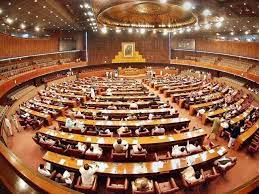
On November 13, a resolution was passed in the Senate, urging the Supreme Court to reconsider its verdict that declared the military trial of civilians for their alleged role in attacks on army installations on May 9, 2023 after the arrest of PTI Chairman, as “unconstitutional.” The resolution, passed in the presence of reportedly fewer than a dozen senators, urged the Supreme Court to “reconsider” its verdict on the military trial of civilians. It termed the Supreme Court’s decision as “an attempt to rewrite the law” and an encroachment on the legislative authority of the parliament. The resolution was tabled when a majority of members were absent, and it was read out by Senator Dilawar Khan from Khyber Pakhtunkhwa. The resolution was supported only by the Balochistan Awami Party (BAP) senators. PPP Senator Raza Rabbani and JI’s Mushtaq Ahmed not only voted against the resolution but also protested against the chairman’s permission to table the resolution, alleging a violation of rules. The resolution argued that the military trial of individuals accused of violence against the army was an “appropriate and proportional response” within Pakistan’s existing constitutional framework. It claimed that within the country’s constitutional framework, the trial of individuals accused of anti-state vandalism and violence under the Army Act serves as a deterrent against such acts. The resolution endorsed the concerns expressed by the family members of martyrs, stating that the absence of military courts would “encourage or embolden those responsible for acts of terrorism,” as regular courts may not hand out strict punishments. The motion urged the Supreme Court to reconsider its decision in line with the “national security paradigm and sacrifices of the martyrs”.[14]
On November 14, members belonging to the country’s mainstream political parties lodged a strong protest in the Senate against the hasty passing of a resolution by the House in support of military courts and called for its immediate withdrawal. Due to the strong protest by the senators and lack of quorum, Deputy Chairman Mirza Muhammad Afridi adjourned the proceedings within minutes and without taking up any agenda item.[15]
On November 16, the Sindh government filed an appeal in the Supreme Court against a previous decision by a five-member bench, which had declared the trials of civilians under the Pakistan Army Act 1952 as ‘unconstitutional.’ The appeal was filed by the chief secretary of Sindh in the Supreme Court. The appeal questions the maintainability of the petitions filed against provisions of the Army Act under Article 184(3) of the Constitution. It argues that the decision to strike down certain sections of the law is in contradiction to the earlier precedents set by the apex court. The appeal mentioned that the petitions were filed in response to actions taken against individuals involved in attacks on military installations on May 9, following the arrest of PTI Chairman Imran Khan. It described the attacks as well-coordinated and aimed at affecting the morale of the Armed Forces, creating a rift within the armed forces, and undermining command and control.[16] On November 18, two days after it was reported that an appeal had landed in the Supreme Court on behalf of the provincial government, a statement issued by the CM’s House stated, “The caretaker Sindh government has clarified that appeal in ‘Trial of Civilians before Military Courts’ case has not been filed in the Supreme Court of Pakistan.” A letter penned by the Sindh advocate general on November 17 informed the principal secretary to the chief minister, the caretaker provincial law minister, and the law and parliamentary affairs secretary that no appeal in the said matter was filed adding the summary to appeal against the top court verdict was not even placed before caretaker CM Maqbool Baqar — who is himself a former SC judge.[17]
On November 20, the defense ministry filed an intra-court appeal (ICA) before the Supreme Court challenging its unanimous decision of October 23. The October decision had declared the trial of 103 civilians for their alleged involvement in the May 9 violence as against the Constitution. ICA was filed by the defense ministry before the Supreme Court. The defense ministry also requested the Supreme Court to suspend the operation of the October 23 short order during the pendency of the intra-court appeal. The appeal was moved through senior counsel Khawaja Haris Ahmed. The ICA argues that the Supreme Court exceeded its jurisdiction by excluding civilians from the ambit of the Pakistan Army Act 1952, specifically those guilty of committing offenses specified in Section 2(d)(1) of the PAA. It contends that such exclusion undermines the ability of the armed forces to effectively discharge their constitutional duty to defend Pakistan against external aggression or threat of war, violating Article 245(1) of the Constitution. The appeal claimed that the court’s decision hampered the armed forces’ ability to fulfil their constitutional duty, which is to defend Pakistan against external aggression or threat of war. This marked the fourth petition related to the Supreme Court’s decision on the trial of civilians. Previous petitions were filed by the federal government, as well as the governments of Khyber Pakhtunkhwa and Balochistan.[18]
On November 20, continuing their protest in the Senate, some senators “disowned” the decision in support of military courts and demanded its withdrawal, as Senate Chairman Sadiq Sanjrani scuttled their attempt to table a separate resolution in support of the Supreme Court (SC) verdict. Lone Jamaat-i-Islami (JI) Senator Mushtaq Ahmed made two or three attempts to read out a resolution in support of the apex court’s decision, but each time the chairman prevented him, terming it a “sub judice matter”. He was apparently alluding to appeals filed by the federal and some provincial governments.[19]
President says he will administrate oath to former PM, Mr. Nawaz Sharif if he is elected
On November 16, President Dr. Arif Alvi stated in an interview with Voice of Amercia (VOA) Urdu that he would administer the oath to PML-N senior leader Nawaz Sharif if elected prime minister for the fourth time in the upcoming elections. President Alvi emphasized his commitment to complying with constitutional requirements. He had previously excused himself from administering the oath to Nawaz Sharif’s younger brother, Shehbaz Sharif, after Imran Khan’s ouster through a no-confidence motion in April 2022. President Alvi highlighted the government’s responsibility and the ECP’s assurance of providing a level playing field for all parties in the upcoming elections. He mentioned writing a letter to the caretaker Prime Minister expressing PTI’s concerns about equal opportunities for all parties. Responding to a question about cases faced by his party’s chairman, President Alvi stated that they were sub judice, expressing full confidence in the judiciary.[20]
PTI President says that representatives of IMF and EU regularly visit PTI Chairman in Jail
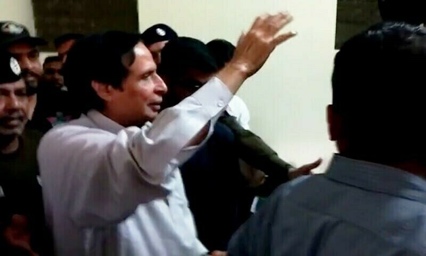
On November 15, PTI President Chaudhry Parvez Elahi affirmed his loyalty to PTI Chairman and said that representatives from the International Monetary Fund (IMF) and the European Union routinely visited PTI Chairman at Adiala Jail . Pervaiz Elahi made this statement while speaking to reporters at Lahore’s Special Court (Central). Pervaiz Elahi said that Imran Khan was held in a cell adjacent to his and representatives from the EU and the IMF visited Imran, and the party chief is poised to secure an unprecedented number of votes when polls are held. Meanwhile, caretaker Information Minister Murtaza Solangi said there was not a single grain of truth in this fantasy and it was truly nothing but a figment of imagination by the senior politico adding that no such meeting had taken place. He said that IMF or EU officials would never meet with a convict.[21]
US and UK ambassadors discuss Poll concerns in meetings with Political Parties heads
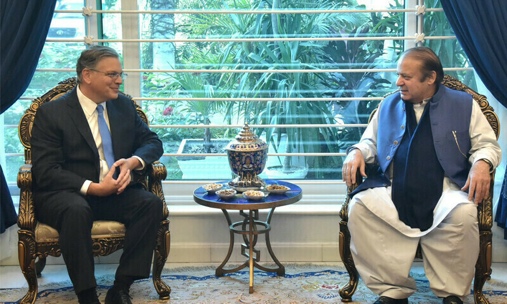
On November 15, the envoys of the United Kingdom and the United States called on leaders of various political parties, including the PPP and PML-N, ostensibly to seek their input about the prospects for polls and electioneering.
US envoy, Donald Blome, after a meeting with PPP leader Yousaf Raza Gilani and a host of political leaders at a gathering in Multan, headed to Lahore to meet former prime minister and Senior PML-N leader, Nawaz Sharif and Istehkam-e-Pakistan Party (IPP) leader Jahangir Khan Tareen. PPP’s Gliani in his meeting with the US envoy in Multan, discussed the political landscape of south Punjab with respect to the upcoming polls. Speaking about the meeting, IPP Information Secretary Dr Firdous Ashiq Awan told media that. the US wanted a “peaceful and stable” Pakistan for stability in the region adding that the issue of level playing field also came up during the discussion with Mr. Blome. In his meeting with the US envoy, Mr. Nawaz Sharif shared his views on the political and economic situation, particularly in the context of his party’s preparations for the upcoming elections and expressed confidence that the people of Pakistan would once again repose their trust in PML-N to lead the country out of the myriad problems.
On the other hand, UK High Commissioner, Jane Marriott, met PPP leader Asif Ali Zardari at Bilawal House in Karachi days after a similar meeting with Mr. Sharif in Lahore. A party statement issued after the meeting said that Mr. Zardari and Ms. Marriott, accompanied by their aides, held a detailed discussion on a “range of issues”. The PPP leader also emphasised the need for Britain’s role in bringing an end to the Israeli aggression in Gaza The meeting, which lasted over an hour, was also attended by PPP’s Saleem Mandviwalla and former federal minister Dr Asim Hussain. Sources privy to details of the discussion claimed that the British envoy was keen to gauge the PPP’s confidence about the prospects in the upcoming polls on February 8. The PPP leader, however, shared his party’s concerns with the UK diplomat about level playing field in the run-up to polls. The US embassy, after Ambassador Blome’s meetings, said that “in the course of his engagements with a broad range of Pakistani political actors, they had discussed the importance of free, fair elections and the right of the Pakistani people to choose their future leaders. Meanwhile, the PTI also issued a strongly worded statement on the meetings, terming the latest huddle a clear interference in Pakistan’s internal affairs.[22]
Additional district & sessions judge (ADSJ) removed for admonishing the defence secretary for not complying with a court order
On November 18, Rawalpindi Additional District & Sessions Judge (ADSJ) Waris Ali was removed from his post a day after he issued an order directing the federal government to remove Defence Secretary, Lt General (Retd) Hamooduz Zaman. The judge had sought a report on the military’s businesses and their beneficiaries from the defence secretary. The defence secretary did not comply with the court order and neither submitted the required report nor appeared in court. The lead counsel was also absent, and a memo of appearance was submitted by the clerk on behalf of the defence secretary, which the judge refused to accept. ADSJ Waris Ali expressed strong remarks about the non-compliance by the defence secretary, stating that it amounted to “the denial of the existence of one of the pillars of the state, i.e., the judiciary.” The judge emphasized that such conduct cannot be ignored. In a written verdict, the judge ordered the removal of the federal secretary of defence and sought assistance from the attorney general. The judge noted that the case required the interpretation of the Constitution, specifically referring to Article 245, which outlines the functions of the armed forces. Following the order, ADSJ Waris Ali was removed from his post and made an officer on special duty (OSD). Being an OSD means that he is a government employee without any specific duties but continues to receive salaries and other perks.[23]
Supreme Court seeks trial for those who validated General Musharaff’s coup
On November 28, Supreme Court took up scrutiny of appeals against the Lahore High Court’s order overturning the conviction of late military dictator Pervez Musharraf. On January 13, 2020, the LHC had declared the special court’s verdict sentencing Pervez Musharraf to death for high treason unconstitutional. During the Supreme Court proceedings, Justice Athar Minallah questioned whether the abrogation of the Constitution on October 12, 1999, when an elected government was ousted, was a more serious offense than the removal of superior court judges on November 3, 2007. The court considered the role of judges who validated the abrogation of the Constitution when Musharraf suspended it and dismissed the National Assembly. Justice Minallah expressed regret over Pakistan’s judicial history, stating that judges had validated the abrogation of the Constitution during Musharraf’s actions. Justice Minallah raised concerns about fair trials, stating that action was taken against Musharraf when judges were attacked (deposed on Nov 3, 2007), raising questions about the legitimacy of the abrogation. CJP questioned why political governments were interested in supporting or defending an individual tried for high treason. CJP referred to experiences in South Africa and Germany, where truth and reconciliation commissions were established to acknowledge past mistakes. Justice Minallah questioned why the Supreme Court did not issue any direction to initiate a case against Pervez Musharraf when Article 270AAA explicitly declared the October 12 military takeover unconstitutional. Justice Minallah regretted that a 2009 verdict denouncing military takeovers did not overrule the 2000 Zafar Ali Shah judgment, which continued to hold field. Justice Minallah observed that contempt of court notices should have been issued against judges who violated their oath of office but were not.[24] On November 22, Supreme Court poked holes in the Lahore High Court’s (LHC) decision to overturn the death sentence of former military ruler Pervez Musharraf, initially imposed by a special court in December 2019 observing that the LHC’s decision addressed issues beyond the scope of the initial petition. CJP, leading a four-judge bench, expressed astonishment at the LHC’s approach, suggesting that it exceeded its jurisdiction. CJP said that LHC could allow the prayers sought in the petition, but what the court did was uprooting the special court itself. The Supreme Court’s scrutiny was directed at the LHC’s January 2020 order, which not only declared the special court’s ruling unconstitutional but also entertained Musharraf’s appeal against his death sentence. CJP Isa wondered whether the high court enjoyed similar power to the Supreme Court, which could invoke Article 187 of the Constitution to do complete justice.[25]
CJP regrets precedents where high courts knowingly disregarded or invalidated earlier Supreme Court’s judgements
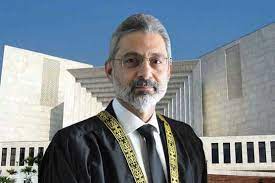
On November 21, CJP Isa expressed regret over precedents in the country’s judicial history where high courts knowingly disregarded or invalidated earlier Supreme Court judgments. The Supreme Court was hearing a set of appeals against the Lahore High Court’s order on January 13, 2020, which declared the death sentence awarded to late military ruler Gen Pervez Musharraf in the high treason case unconstitutional. Chief Justice Isa, heading a four-judge Supreme Court bench, expressed concern over instances where high courts knowingly disregarded or invalidated earlier judgments of the Supreme Court. He referred to Article 189 of the Constitution and questioned whether Supreme Court judgments were not binding on high courts. CJP Isa expressed surprise that the Lahore High Court, in its 2020 judgment, overlooked earlier decisions of the apex court and held that the top court had disregarded certain legal propositions. CJP pointed out disturbing questions in the record of the original filing of the petition before the Lahore High Court. He noted that objections were raised by the court office when the petition was filed, stating that it was not maintainable. The petition was filed without the power of attorney on behalf of Gen Musharraf, who was residing in Dubai at the time. The case was initially taken up by a single-judge bench despite office objections and later proceeded before a full bench.[26]
European Union report highlights enforced disappearance and shrinking media freedom
On November 21, European Union, during its review of Pakistan’s preferential trade status, highlighted concerns related to ‘enforced disappearances and shrinking media freedom’. European Union conducted a biennial review of Pakistan’s Generalized Scheme of Preferences Plus (GSP+) status. GSP+ is a preferential trade arrangement that allows countries to enjoy duty-free or reduced-duty access to the European market, contingent upon their commitment to certain international conventions related to human rights, labour rights, environmental standards, and good governance. The review emphasized issues related to enforced disappearances and shrinking media freedom in Pakistan. Progress on aspects such as the space for civil society, freedom of speech, and media was noted to be largely the same as in the previous review in 2020. The report highlighted a disturbing trend of journalists facing violent attacks and unexplained disappearances. Online trolls were noted to be active in launching targeted campaigns against critical individuals. The clampdown on freedom of expression was not limited to the media, as political activists, human rights defenders, and elected representatives also faced restrictions through various measures. Journalists, facing threats and attacks, resorted to self-censorship as a means of survival.[27]
Supreme Court judge regrets President, CEC, Governors of KP and Punjab were guilty of not performing their duties by not holding elections within 90 days period
On November 23, Justice Athar Minallah of the Supreme Court regretted that President Dr Arif Alvi, Punjab and Khyber Pakhtunkhwa governors, and the chief election commissioner (CEC) were guilty of not performing their statutory duties by not holding elections within the stipulated period of 90 days. In an additional note, Justice Minallah regretted that people of Pakistan, particularly the registered voters, were deprived of the most fundamental right to participate in the governance of the state through chosen representatives and obviously the right to vote in accordance with the law. The note came in addition to the November 3 order in which the Supreme Court had expressed confidence that the polls would be held without disruption on February 8, 2024. Justice Minallah observed that the conduct and failure of the president, governors and CEC to discharge their constitutional duties made them answerable to the people. Justice Minallah emphasized that it was the duty of the courts to put an end to impunity against the violation of the Constitution and constitutional rights. Note added that it was the primary constitutional duty of ECP that the were held in a fair, free and transparent manner without giving anyone an opportunity to complain. Note strongly highlighted that constitutionally created right empowers the people to police the misconduct of public authorities and the government in addition to being compensated and vindicated for a wrong. If effectively used and enforced, it is a right that would encourage public participation in putting an end to abuse of powers and the impunity for violating the Constitution and constitutional rights, adding it is a right exercisable by citizens and the general public without being at the mercy of others, such as the federal government, for commencing criminal proceedings in case of the offence under Article 6 (high treason).[28]
ECP concludes hearings on objections to the new delimitation of constituencies
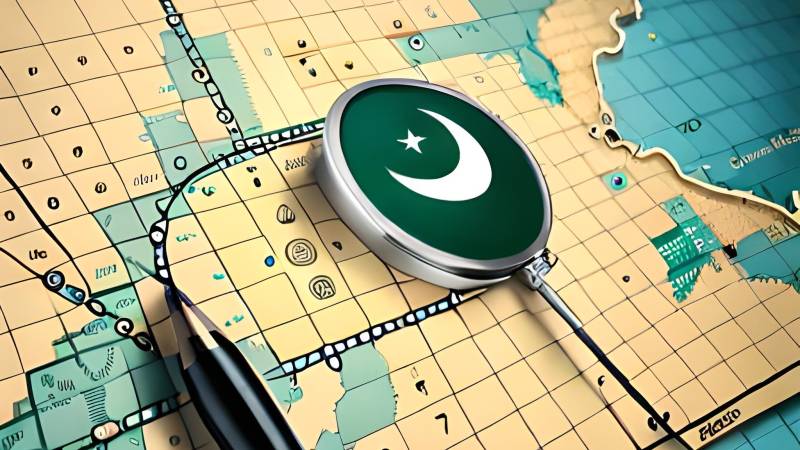
On November 23, ECP concluded hearings on objections to the new delimitation of constituencies. During a meeting, chaired by the CEC, ECP concluded the hearings on objections to the preliminary delimitation of national and provincial assembly constituencies. ECP had received a total of 1,403 representations challenging the delimitation of constituencies. Approximately 80% of the examined petitions claimed gerrymandering by the delimitation committees. Many petitioners alleged non-compliance with principles outlined in Section 20 of the Elections Act 2017. The final report on the redrawn constituencies was published on November 30, as planned.[29]
Former president anticipates the formation of a “national unity government” after the upcoming general election
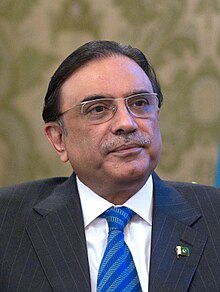
On November 23, former President, Asif Ali Zardari anticipated the formation of a “national unity government” after the upcoming general election, suggesting that no single party would secure a simple majority. He ruled out the possibility of Nawaz Sharif playing a leading role in the next government and asserted that it was the PPP’s turn to take the helm. Mr. Zardari expressed confidence that the February 8 elections would be held on time. He criticized PTI Chief Imran Khan for trying to keep him out of politics and for scheming to manipulate the 2024 elections to extend his rule. Mr. Zardari stated that the PPP was open to forming coalitions with any party and emphasized the likelihood of a national unity coalition government after the elections. He mentioned that if PML-N did not ally with them, the PPP could form alliances with other parties. Mr. Zardari claimed that the PTI had offered six ministries to the PPP for an alliance with Mr. Imran Khan’s party. Mr. Zardari commented on Bilawal Bhutto-Zardari’s remarks on generational change in politics, stating that Bilawal still needed more time to be fully trained. When asked about the involvement of former ISI Chief Lt General Faiz Hamid in attempts to forge an alliance between PTI and PPP, Zardari did not provide a direct response. Mr. Zardari defended the PDM’s move to oust Imran Khan as prime minister in April 2022, stating that Pakistan would have suffered had Imran Khan stayed. Mr. Zardari mentioned that the PPP’s experience with the previous government led by a multi-party coalition was difficult, and there were issues with Shehbaz Sharif’s decisions that harmed the country.[30]
PM urges political parties not to intertwine security challenges with political matters
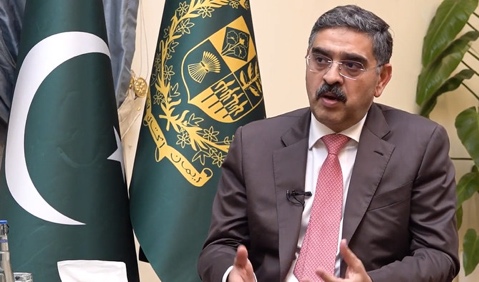
On November 26, Caretaker Prime Minister Anwaar ul Haq Kakar, while giving an interview to a private tv channel, urged political parties not to intertwine security challenges with political matters. He emphasized that the criticism they were facing indicated parties’ insecurity about their own campaign strategies and stated that the caretaker government was not sabotaging anyone. Responding to accusations of favouritism, Mr. Kakar denied playing favourites and asserted that the caretaker government had good relationships with all political parties. He mentioned that accusations of playing the “victim card” should stop, and security challenges should not be mixed with politics. Mr. Kakar distanced himself from Sarfaraz Bugti’s recent statement about joining PML-N, stating that he was not a spokesperson for Mr. Bugti. He clarified that PTI would have full liberty to conduct political activities as part of their election campaign. Mr. Kakar mentioned that positive developments in the economy would be revealed in the upcoming weeks. He praised the Special Investment Facilitation Council (SIFC) for maintaining policy consistency regardless of the ruling party. Mr. Kakar addressed the issue of missing Baloch students, stating that the government would offer representation at the appropriate platform when feasible. He explained the circumstances of the students’ disappearance and highlighted the government’s purported lack of involvement. The high court issued summons to the prime minister, caretaker ministers, and secretaries of interior and defense regarding the missing students. Mr. Kakar supported Sarfraz Bugti’s concerns about summoning the prime minister for every minor issue, stating that it was not appropriate for the court to do so. Mr. Kakar emphasized that the count of missing persons in Pakistan is the lowest in the region.[31]
SFIC Meetings
On November 16, the Special Investment Facilitation Council (SIFC) held its 7th Apex Committee Meeting, chaired by Caretaker Prime Minister, Mr. Anwaar-ul-Haq Kakar. The meeting was attended by the Chief of Army Staff (COAS), General Syed Asim Munir, members of the federal cabinet, provincial chief ministers, and high-level government officials. Ministries presented progress reports on projects identified in key sectors. Plans were discussed to further improve the ecosystem for realizing envisaged investments in a timely manner. The Committee expressed extreme satisfaction with the overall progress under SIFC. The increasing level of engagement with friendly countries both by public and private entities, was appreciated. An outreach strategy to proactively engage the investor community was noted for translating into enhanced traction and approvals domestically and globally. Policy-level interventions were approved to improve investors’ confidence. Measures included repatriation of profits, strengthening domestic dispute resolution mechanisms, infrastructural and human resource development, and the speedy operationalization of the EXIM Bank. A comprehensive strategy was directed to address oil and gas issues in a sustainable manner through investments in relevant industries. Progress on the privatization of State-Owned Enterprises (SOEs) was reviewed and appreciated. The committee directed to maintain a fast pace in the privatization process. The stakeholders were directed to vigorously pursue SIFC’s initiatives through a collaborative approach to realize short to medium-term dividends. COAS reassured the undaunted resolve of the Pakistan Army to backstop government initiatives in various domains for the sustainable recovery of the economy.[32] A special session of Apex Committee, SIFC was held on 24 November 2023, to foster strategic partnerships with friendly countries. The meeting was chaired by Caretaker PM and attended by COAS, ministers and high level government officials. The Committee reviewed the existing level of collaboration and unanimously approved various initiatives to be broached with friendly countries and directed to fast-track implementation of various projects conceived under these initiatives. PM appreciated the efforts of concerned ministries for identifying prospective areas of collaboration and directed all stakeholders for realisation of envisioned long term economic dividends. COAS assured unwavering resolve of Pakistan Army to support economic initiatives being undertaken by Government of Pakistan.[33]
IHC warns PM with FIR if government fails to recover missing Baloch students
On November 29, the IHC ordered the federal government to recover all missing Baloch students, warning that a case would be registered against the caretaker prime minister if they failed to ensure the recovery of the students. The order was issued during a hearing of a case related to the implementation of the recommendations of the Commission of Inquiry on Enforced Disappearances. AGP informed the court that 22 Baloch students had been recovered and returned home. However, the AGP mentioned that 28 Baloch students were still missing, and efforts would be made to recover all the missing persons., Justice Kayani emphasized that the issue of missing persons is a matter of basic human rights. Justice Kayani warned that if the missing persons are not recovered, he will order the registration of a FIR against caretaker Prime Minister Anwaar-ul-Haq Kakar. The warning came after the caretaker PM failed to appear before the court as summoned. Judge held the defense secretary and the interior secretary responsible if Baloch students were not recovered. He emphasized that the authorities should present the missing persons in court, even if they are considered terrorists. Justice Kayani mentioned that if the trial of Indian spy Kulbhushan Jadhav can be held, anyone can be tried if they have committed a crime. The court directed the government committee to provide details of the families of all missing persons and instructed the interior minister to meet the Baloch families within two weeks. IHC adjourned the hearing of the case until January 10, 2024.[34]
PTI Chairman picks Barrister Gohar Khan as party’s chairman for the upcoming intra-party polls
On November 29, PTI Chairman picked Barrister Gohar Khan, a member of his legal team, as the party’s candidate for chairman in the upcoming intra-party polls. Mr. Gohar, who has been associated with the party and Khan as a legal advisor, said he was “speechless” after he was named for the coveted post in the party. The PTI is slated to conduct its intra-party elections on December 02, 2023. The development was announced as PTI leaders Barrister Ali Zafar, spokesperson Raoof Hasan and Barrister Gohar spoke with journalists in Islamabad during a presser. Barrister Zafar said the chairmanship of Gohar Khan was temporary, as Mr. Khan would return as chairman of the party once his disqualification in the wake of the Toshakhana case is overturned.
IHC acquits former PM, Mr. Nawaz Sharif in the Avenfield Apartments reference case
On November 29, the IHC acquitted PML-N senior leader Nawaz Sharif in the Avenfield Apartments reference case, removing one of the obstacles for him to qualify to stand in elections in February 2024. The court also dismissed the plea filed by NAB in the Flagship reference against Nawaz Sharif after the accountability watchdog withdrew it. IHC division bench, comprising Chief Justice Aamer Farooq and Justice Miangul Hassan Aurangzeb, announced the verdict on Nawaz Sharif’s plea to overturn his conviction in the Avenfield Apartments reference. The judgment acquitted Nawaz Sharif in the Avenfield Apartments reference, a case related to ownership of assets beyond known sources of income. The IHC also dismissed the plea filed by NAB in the Flagship reference against Mr. Nawaz Sharif. NAB withdrew the plea. The acquittal removes a significant obstacle for Mr. Nawaz Sharif to qualify to stand in the elections scheduled for February 8, 2024. Earlier, the IHC had also acquitted PML-N Vice-President Maryam Nawaz and her husband Captain (retd) Muhammad Safdar in the Avenfield reference, nullifying the conviction handed to them in 2018. In July 2018, a trial court had sentenced Mr. Nawaz Sharif to 10 years in jail in the Avenfield reference. Maryam Nawaz was sentenced to seven years, and Captain Safdar received a two-year sentence. Mr. Nawaz Sharif and his daughter Maryam were arrested upon their arrival in Lahore from London in July 2018. In December 2018, Nawaz Sharif received a seven-year jail term and a fine in the Al-Azizia reference. Nawaz Sharif filed appeals in the IHC for both convictions to be overturned, and the high court ordered the release of the PML-N leaders while temporarily suspending the sentences. In June 2021, Nawaz Sharif’s appeals were dismissed as he failed to appear in the IHC during the proceedings. In October 2023, Nawaz Sharif returned to the country after obtaining protective bail in both graft cases, surrendered before the court, and his appeals were restored. PML-N leader, Senator Azam Nazeer Tarar stated that NAB had failed to present evidence against Nawaz Sharif in the Avenfield reference. He criticized NAB for not proving corruption allegations and establishing the involvement of Nawaz Sharif and his daughter in corruption.[35]
Army convicts two retried officers for violation of the provisions of Official Secrets Act, 1923 related to espionage and acts prejudicial to the safety and interest of the State
On November 25, Major (Retired) Adil Farooq Raja and Captain (Retired) Haider Raza Mehdi, both retired officers of Pakistan Army, were convicted and sentenced through Field General Court Martial (FGCM) under Pakistan Army Act, 1952 for the charges of inciting sedition among army personnel from discharge of duties and violation of the provisions of Official Secrets Act, 1923 related to espionage and acts prejudicial to the safety and interest of the State. The court of competent jurisdiction convicted and adjudged both the individuals on the date of 7th and 9th October 2023, through due judicial process, with 14 years rigorous imprisonment awarded to Major (Retired) Adil Farooq Raja and 12 years rigorous imprisonment to Captain (Retired) Haider Raza Mehdi. Pursuant to the awarded sentence, the Ranks of both officers were forfeited on 21 November 2023.[36]
Islamic Scholars meet COAS
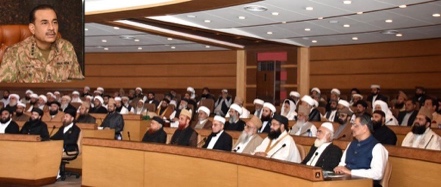
On November 17, leading Islamic scholars from various schools of thought interacted with General Syed Asim Munir, Chief of Army Staff (COAS) at GHQ, Rawalpindi. Ulema and Mashaikh unanimously condemned extremism, terrorism, and sectarianism. They pledged continued support for the untiring efforts of the State and security forces in bringing tolerance, peace, and stability to the country. The scholars emphasized that Islam is a religion of peace and harmony. They rejected skewed and distorted interpretations of religion, stating that such interpretations have nothing to do with Islamic teachings. COAS lauded the ‘Paigham-e-Pakistan’ Fatwa by religious scholars to nullify misleading propaganda disseminated by extremists. He called upon Ulema and Mashaikh for the propagation and implementation of the Fatwa in letter and spirit. COAS highlighted the role of Ulema in harnessing youth towards understanding Quran and Sunnah and character building. He emphasized character building alongside academic knowledge and technical skills. COAS stressed that there was no space for intolerance and extreme behaviour by any entity, particularly against minorities and vulnerable segments of society. The forum supported the government’s measures to harden the state, including repatriation of illegal foreigners, implementation of One Document Regime, anti-smuggling measures, and anti-power theft drive. The forum acknowledged Pakistan’s position and concerns on terrorism emanating from Afghan soil. It urged serious actions by Afghanistan to address Pakistan’s concerns. COAS highlighted that Pakistan belongs to all Pakistanis without any religious, provincial, tribal, linguistic, ethnic, sectarian, or any other distinction. The use of force and armed action by any militia, entity, or group other than the State was deemed unacceptable. [37]
82nd Formation Commanders Conference
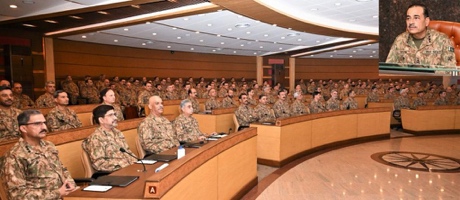
On November 23, the 82nd Formation Commanders Conference was held at GHQ, Rawalpindi presided over by General Syed Asim Munir, Chief of Army Staff (COAS). The forum paid rich tribute to the supreme sacrifices of Shuhada (martyrs) , including officers and soldiers of the Armed Forces, Law Enforcement Agencies, and Pakistani citizens. Participants were briefed on professional matters, national security challenges, and measures being undertaken to counter traditional and non-traditional security threats. The forum took a holistic view of ongoing counter-terrorism operations. It resolved that all terrorists, their facilitators, and abettors working to destabilize Pakistan would be dealt with the full might of the state. COAS expressed satisfaction over operational preparedness and the high standards of training and morale maintained by formations to deal with the emerging threat paradigm. The forum expressed unequivocal diplomatic, moral, and political support to the people of Palestine. Pakistan reiterated its principled stance supporting the two-state solution, based on pre-1967 borders, with Al Quds Al Sharif as the capital of Palestine. Concerns were expressed over the continued repression of Kashmiris in Indian Illegally Occupied Jammu and Kashmir. The forum condemned the unabated human rights violations by Indian forces and reaffirmed Pakistan’s support to Kashmiris politically, diplomatically, and morally. The forum resolved to fully support government initiatives in various domains for sustainable recovery of the economy. This includes curbing illegal activities such as smuggling, hoarding, electricity theft, implementation of the One Document Regime, dignified repatriation of illegal foreigners, and safeguarding the national database.[38]
Speaker National Assembly meets Foreign Dignitaries
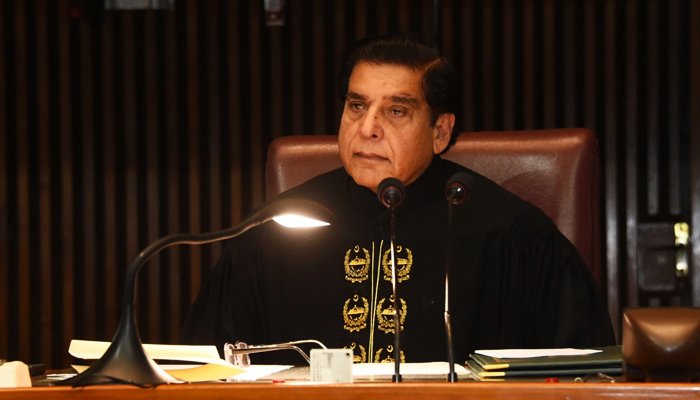
-
-
- On November 02, Mr. Afzal Kiani, Mayor of Honslo, UK called on Raja Parvez Ashraf, Speaker, National Assembly at Parliament House, Islamabad. [39]
-
Chairman Senate meets Foreign Dignitaries
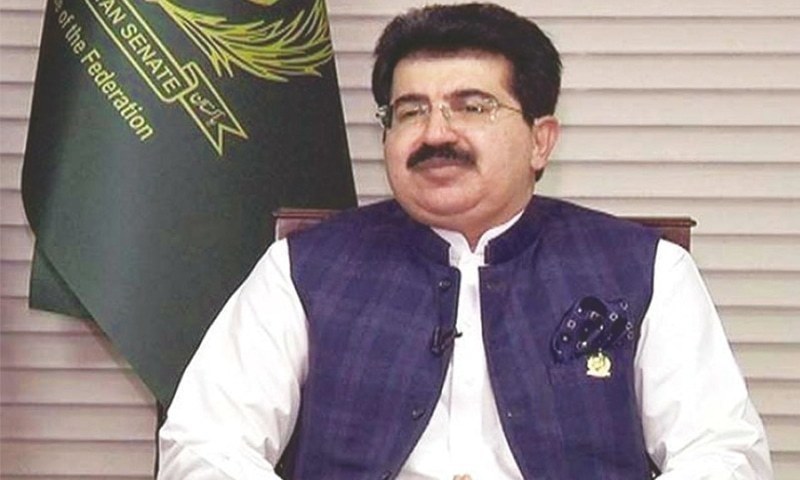
-
-
- On November 02, High Commissioner of Brunei Darussalam, PG Kamal Bashah called on Chairman Senate Muhammad Sadiq Sanjrani at Parliament House, Islamabad.[40]
-
Interactions of COAS with Foreign Dignitaries
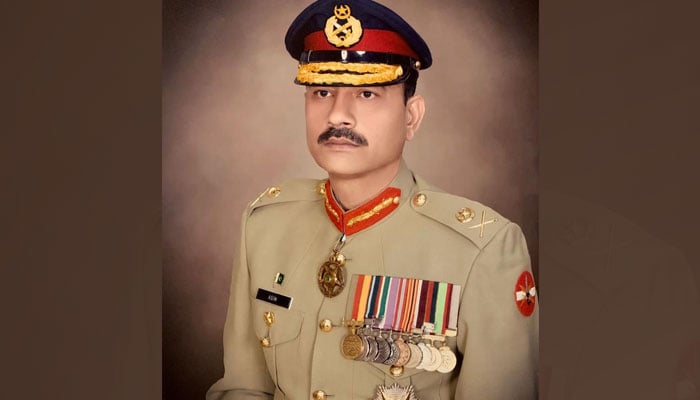
During November 2023, there were two meetings of General Syed Asim Munir, Chief of Army Staff (COAS) with foreign dignitaries:
-
-
- On November 01, Chief of Army Staff (COAS), General Syed Asim Munir called on H.E Ilham Aliyev, President of Republic of Azerbaijan, Defense Minister, 1st Deputy Minister & Chief of General Staff and Commander of Azerbaijan Air Force during his visit to Azerbaijan.[41]
- On November 24, His Excellency Sheikh Saleh bin Abdullah bin Muhammad Humaid, Imam-e-Kaaba called on Chief of Army Staff (COAS), General Syed Asim Munir at GHQ, Rawalpindi.[42]
-
Caretaker Prime Minister’s Interactions with COAS
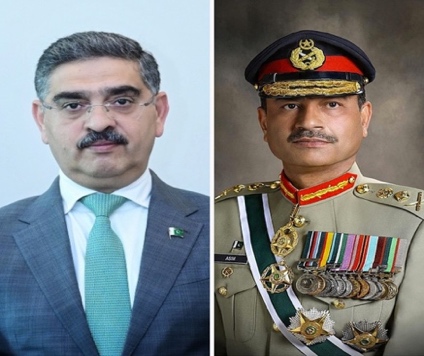
Care taker Prime Minister Mr. Anwar ul Haq Kakar and Chief of Army Staff (COAS), General Syed Asim Munir met twice during the month of November 2023:
-
- On November 16, Chief of Army Staff (COAS), General Syed Asim Munir met with Caretaker PM, Mr. Anwar ul Haq Kakar at 7th meeting of the Apex Committee of Special Investment Facilitation Council, held in Islamabad. [43]
- On November 24, Chief of Army Staff (COAS), General Syed Asim Munir met with Caretaker PM, Mr. Anwar ul Haq Kakar at special session of Apex Committee, Special Investment Facilitation Council (SIFC) held in Islamabad. [44]
-
References
-
Malik Asad, “‘Empowered’ body formed to look into Faizabad sit-in,” Dawn online, November 16, 2023, accessed November 17, 2023. https://www.dawn.com/news/1789744/empowered-body-formed-to-look-into-faizabad-sit-in ↑
-
Iftikhar A. Khan, “Senate approves resolution for NAB ordinance extension,” Dawn online, November 03, 2023, accessed November 15, 2023. https://www.dawn.com/news/1786001/senate-approves-resolution-for-nab-ordinance-extension ↑
-
Iftikhar A. Khan, “Another bill passed by parliament goes missing,” Dawn online, November 05, 2023, accessed November 15, 2023. https://www.dawn.com/news/1786574/another-bill-passed-by-parliament-goes-missing ↑
-
Kalbe Ali, “SC voids Pemra’s bid to vest its chief with all powers,” Dawn online, November 05, 2023, accessed November 15, 2023. https://www.dawn.com/news/1786551/sc-voids-pemras-bid-to-vest-its-chief-with-all-powers ↑
-
Iftikhar A. Khan, “Caretakers stopped from moving bill in Senate,” Dawn online, November 08, 2023, accessed November 16, 2023. https://www.dawn.com/news/1787395/caretakers-stopped-from-moving-bill-in-senate ↑
-
Malik Asad, “PMO doesn’t interfere in spy agencies work, IHC told,” Dawn online, November 07, 2023, accessed November 16, 2023. https://www.dawn.com/news/1787141/pmo-doesnt-interfere-in-spy-agencies-work-ihc-told ↑
-
Malik Asad, “SC tells petitioner to take complaint against ex-ISI chief to ‘relevant quarters’,” Dawn online, November 09, 2023, accessed November 16, 2023. https://www.dawn.com/news/1787643/sc-tells-petitioner-to-take-complaint-against-ex-isi-chief-to-relevant-quarters ↑
-
Ikram Junaidi | Iftikhar A. Khan, “PTI presents 24-point charter of demands to ECP,” Dawn online, November 09, 2023, accessed November 16, 2023. https://www.dawn.com/news/1787685/pti-presents-24-point-charter-of-demands-to-ecp ↑
-
Jahanzeb Abbasi, “SJC issues another show cause to Justice Naqvi,” Express Tribune online, November 22, 2023, accessed November 29, 2023. https://tribune.com.pk/story/2447632/sjc-issues-another-show-cause-to-justice-naqvi ↑
-
Malik Asad, “SC returns petition on ‘missing persons’,” Dawn online, November 12, 2023, accessed November 16, 2023. https://www.dawn.com/news/1788624/sc-returns-petition-on-missing-persons ↑
-
“PTI loses strong wicket,” Express Tribune online, November 11, 2023, accessed November 16, 2023. https://tribune.com.pk/story/2445888/asad-umar-resigns-from-pti-completely-quits-politics ↑
-
Waseem Ahmad Shah, “KP caretaker CM’s death gives rise to legal conundrum,” Dawn online, November 12, 2023, accessed November 16, 2023. https://www.dawn.com/news/1788623/kp-caretaker-cms-death-gives-rise-to-legal-conundrum ↑
-
Malik Asad, “Bizenjo ‘coerced’ over census result, SC told,” Dawn online, November 14, 2023, accessed November 17, 2023. https://www.dawn.com/news/1789106/bizenjo-coerced-over-census-result-sc-told ↑
-
Amir Wasim, “Senators demand review of military trial verdict,” Dawn online, November 14, 2023, accessed November 17, 2023. https://www.dawn.com/news/1789099/senators-demand-review-of-military-trial-verdict ↑
-
Amir Wasim, “Senators protest resolution against SC ruling,” Dawn online, November 15, 2023, accessed November 17, 2023. https://www.dawn.com/news/1789458/senators-protest-resolution-against-sc-ruling ↑
-
Malik Asad, “Sindh appeals SC verdict on military trials of civilians,” Dawn online, November 17, 2023, accessed November 29, 2023. https://www.dawn.com/news/1790032/sindh-appeals-sc-verdict-on-military-trials-of-civilians ↑
-
Tahir Siddiqui|Malik Asad, “Sindh ‘disowns’ appeal of verdict on military trials,” Dawn online, November 19, 2023, accessed November 29, 2023. https://www.dawn.com/news/1790618/sindh-disowns-appeal-of-verdict-on-military-trials ↑
-
Nasir Iqbal, “Supreme Court judge Mazahar Naqvi contests SJC proceedings,” Dawn online, November 21, 2023, accessed November 22, 2023. https://www.dawn.com/news/1791118/supreme-court-judge-mazahar-naqvi-contests-sjc-proceedings ↑
-
Amir Wasim, “Resolution in support of military courts remains bone of contention,” Dawn online, November 21, 2023, accessed November 22, 2023. https://www.dawn.com/news/1791122/resolution-in-support-of-military-courts-remains-bone-of-contention ↑
-
Syed Irfan Raza, “President ‘will administer oath to Nawaz’ if elected PM,” Dawn online, November 17, 2023, accessed November 17, 2023. https://www.dawn.com/news/1790025/president-will-administer-oath-to-nawaz-if-elected-pm ↑
-
Rana Bilal, “Elahi alleges representatives from IMF and EU routinely visit Imran in jail; govt dismisses claims,” Dawn online, November 16, 2023, accessed November 17, 2023. https://www.dawn.com/news/1789843/elahi-alleges-representatives-from-imf-and-eu-routinely-visit-imran-in-jail-govt-dismisses-claims ↑
-
Imran Ayub | Zulqernain Tahir, “Envoys discuss ‘poll concerns’ in meetings with political bigwigs,” Dawn online, November 19, 2023, accessed November 21, 2023. https://www.dawn.com/news/1790614/envoys-discuss-poll-concerns-in-meetings-with-political-bigwigs ↑
-
“Judge made OSD a day after ordering defence secy’s removal,” Dawn online, November 19, 2023, accessed November 21, 2023. https://www.dawn.com/news/1790576/judge-made-osd-a-day-after-ordering-defence-secys-removal ↑
-
Nasir Iqbal, “Judge seeks trial of those who validated Musharraf’s 1999 coup,” Dawn online, November 29, 2023, accessed November 29, 2023. https://www.dawn.com/news/1793420/judge-seeks-trial-of-those-who-validated-musharrafs-1999-coup ↑
-
“LHC’s order in Musharraf case went beyond scope of petition: CJP,” Dawn online, November 23, 2023, accessed November 27, 2023. https://www.dawn.com/news/1791693/lhcs-order-in-musharraf-case-went-beyond-scope-of-petition-cjp ↑
-
‘CJP assails LHC for ignoring verdicts in Musharraf case,” Dawn online, November 22, 2023, accessed November 23, 2023. https://www.dawn.com/news/1791399/cjp-assails-lhc-for-ignoring-verdicts-in-musharraf-case ↑
-
Mubarak Zeb Khan, “Enforced disappearances, curbs on media take centre stage in GSP+ review,” Dawn online, November 22, 2023, accessed November 23, 2023. https://www.dawn.com/news/1791363/enforced-disappearances-curbs-on-media-take-centre-stage-in-gsp-review ↑
-
Nasir Iqbal, “President, CEC ‘breached statutory duties’ on poll date,” Dawn online, November 24, 2023, accessed November 27, 2023. https://www.dawn.com/news/1791983/president-cec-breached-statutory-duties-on-poll-date ↑
-
Iftikhar A. Khan, “ECP gears up for polls as delimitation hearings conclude,” Dawn online, November 24, 2023, accessed November 27, 2023. https://www.dawn.com/news/1791984/ecp-gears-up-for-polls-as-delimitation-hearings-conclude ↑
-
Syed Irfan Raza, “Zardari foresees another coalition govt ‘not led by Nawaz’,” Dawn online, November 24, 2023, accessed November 27, 2023. https://www.dawn.com/news/1792019/zardari-foresees-another-coalition-govt-not-led-by-nawaz ↑
-
“Security challenges not be mixed with politics: PM Kakar,” Dawn online, November 26, 2023, accessed November 29, 2023. https://www.dawn.com/news/1792606/security-challenges-not-be-mixed-with-politics-pm-kakar ↑
-
“7th Apex Committee Meeting held on 16th Nov, 2023,” SFIC online, November 16, 2023, accessed November 29, 2023. https://www.sifc.gov.pk/events/20 ↑
-
“A special session of Apex Committee, SIFC was held on 24 November 2023, to foster strategic partnerships with friendly countries,” PMO online, November 24, 2023, accessed November 29, 2023. https://www.pmo.gov.pk/press_release_detailes.php?pr_id=4955 ↑
-
Awais Yousafzai, “FIR to be lodged against PM if Baloch students not recovered, warns IHC,” Geo News online, November 29, 2023, accessed November 29, 2023. https://www.geo.tv/latest/520948-fir-to-be-lodged-against-pm-if-baloch-students-not-recovered-warns-ihc ↑
-
Awais Yousafzai, “IHC acquits Nawaz Sharif in Avenfield reference,” Geo News online, November 29, 2023, accessed November 29, 2023. https://www.geo.tv/latest/520937-ihc-acquits-nawaz-sharif-in-avenfield-reference ↑
-
“Major (Retired) Adil Farooq Raja and Captain (Retired) Haider Raza Mehdi, both retired officers of Pakistan Army, were convicted and sentenced through Field General Court Martial (FGCM) under Pakistan Army Act, 1952 for the charges of inciting sedition among army personnel from discharge of duties and violation of the provisions of Official Secrets Act, 1923 related to espionage and acts prejudicial to the safety and interest of the State,” ISPR online, November 25, 2023, accessed November 29, 2023. https://ispr.gov.pk/press-release-detail?id=6679 ↑
-
“Leading Islamic Scholars (Ulema o Mashaikh) of all schools of thought interacted with General Syed Asim Munir, NI (M), Chief of Army Staff (COAS) at GHQ Ulema and Mashaikh unanimously condemned extremism, terrorism and sectarianism and pledged their continued support for untiring efforts of State and security forces for bringing tolerance, peace and stability in the country,” ISPR online, November 17, 2023, accessed November 21, 2023. https://ispr.gov.pk/press-release-detail?id=6672 ↑
-
“General Syed Asim Munir, NI (M), Chief of Army Staff (COAS), presided over the 82nd Formation Commanders Conference at GHQ, which was attended by Corps Commanders, Principal Staff Officers and all Formation Commanders of Pakistan Army,” ISPR online, November 23, 2023, accessed November 27, 2023. https://ispr.gov.pk/press-release-detail?id=6677 ↑
-
Speaker-National Assembly of Pakistan @NASpeakerPK Twitter, November 02, 2023, 1: 32 pm, accessed November 29, 2023: https://twitter.com/NAofPakistan/status/1719995842315395371 ↑
-
“High Commissioner of Brunei Darussalam Meets Chairman Senate Muhammad Sadiq Sanjrani; both emphasize the need to further bolster these relations, particularly in areas of trade, business, investment, and the economic sector,” Senate of Pakistan online, November 02, 2023, accessed November 29, 2023: https://senate.gov.pk/en/news_content.php?id=NTI0NQ== ↑
-
“General Syed Asim Munir, NI (M), COAS is on an official visit to the Republic of Azerbaijan,” ISPR online, November 01, 2023, accessed November 29, 2023. https://ispr.gov.pk/press-release-detail?id=6660 ↑
-
“His Excellency Sheikh Saleh bin Abdullah bin Muhammad Humaid, Imam-e-Kaaba called on General Syed Asim Munir, NI (M), Chief of Army Staff (COAS) at General Headquarters,” ISPR online, November 24, 2023, accessed November 29, 2023. https://ispr.gov.pk/press-release-detail?id=6678 ↑
-
“7th Apex Committee Meeting held on 16th Nov, 2023,” SFIC online, November 16, 2023, accessed November 29, 2023. https://www.sifc.gov.pk/events/20 ↑
-
“6th Apex Committee Meeting of SIFC,” PMO online, October 04, 2023, accessed October 30, 2023. https://pmo.gov.pk/press_release_detailes.php?pr_id=4870 ↑
-


